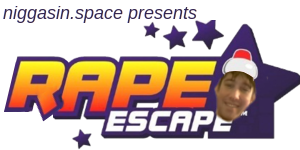Originally posted by Charles Ex Machina
an object by itself have no worth.
Bitcoin isn't an object, it's a computer program
it's value and worth is determined by the work it costs to create 1 "Bitcoin" on the bitcoin network. This is hard coded into the program itself and even if all matter in the universe is destroyed and the only thing is a bitcoin disc solar powered floating through the stars it would continue mining until 21 million bitcoins are produced and there would always ONLY be 21 million
Can you name anything else that exists that there are only 21 million of in the universe? That can't be reproduced? copied? changed?
The only thing I can think of is PoW crypto. It's simply a technological advancement to the medium of exchange model.
Whatever you fail to understand, the banks understand just fine. They are switching to this system and so you will you.
The difficulty in scaling
Scaling the Ethereum network is difficult because its current design limits the number of transactions that can be processed per second, leading to high levels of congestion and slow transaction speeds.
Zero-knowledge proof technology can help scale Ethereum by allowing for more efficient and secure verification of transactions without revealing sensitive information. In a traditional blockchain, every node in the network needs to validate and store every transaction, which can lead to slow speeds and high storage requirements as the network grows.
With zero-knowledge proofs, transactions can be verified using a proof that provides sufficient evidence of the validity of the transaction without revealing any private data. This means that transactions can be validated more quickly and with less storage, reducing the burden on the network and enabling it to process more transactions per second.
In the context of Ethereum, zero-knowledge proofs — such as those provided by Starkware’s Prover — can be used to verify the validity of smart contract transactions, enabling the network to scale without sacrificing security or privacy. By reducing the amount of data that needs to be stored and processed, zero-knowledge proofs can help Ethereum to handle a larger number of transactions and support a growing number of decentralized applications.
Visa Moving Ahead with Digital Currencies
Although VisaNet can handle up to 65,000 transactions per second, it is still beholden to the Society for Worldwide Interbank Financial Telecommunications (SWIFT) as the baseline payment infrastructure between banks. At the recent StarkWare Sessions 2023 event in Tel Aviv, Visa aims to bridge that gap by experimenting with digital assets.
“We set all over Swift, so we can’t move money as frequently as we’d like because there are a number of limitations that exist in those networks. And so, we’ve been experimenting, we publicly announced. We’ve been testing how to actually accept settlement payments [with stablecoins],”
Cuy Sheffield, Head of Crypto at Visa
StarkWare Sessions is an Ethereum-oriented community event focused on the latest developments, round tables, and workshops. In March 2021, Visa became the first significant payments network to settle USD Coin (USDC) stablecoin settlement on the Ethereum network, thanks to Visa’s partnership with Crypto.com.
Still in the pilot stage, Sheffield said that Visa integrates blockchain transactions on top of the Swift network.
“The same way that we can convert between dollars in euros on a cross-border transaction, we should be able to convert between digital tokenized dollars and traditional dollars.”
For crypto exchanges and other companies, relying on digital assets alone means they don’t have to hold traditional fiat in treasuries for their settlements. For example, Crypto.com uses Anchorage Digital, a federally chartered digital asset bank. As Visa’s partner, Anchorage Digital can settle USDC transactions sent to Visa as a part of the Crypto.com Visa card program.




